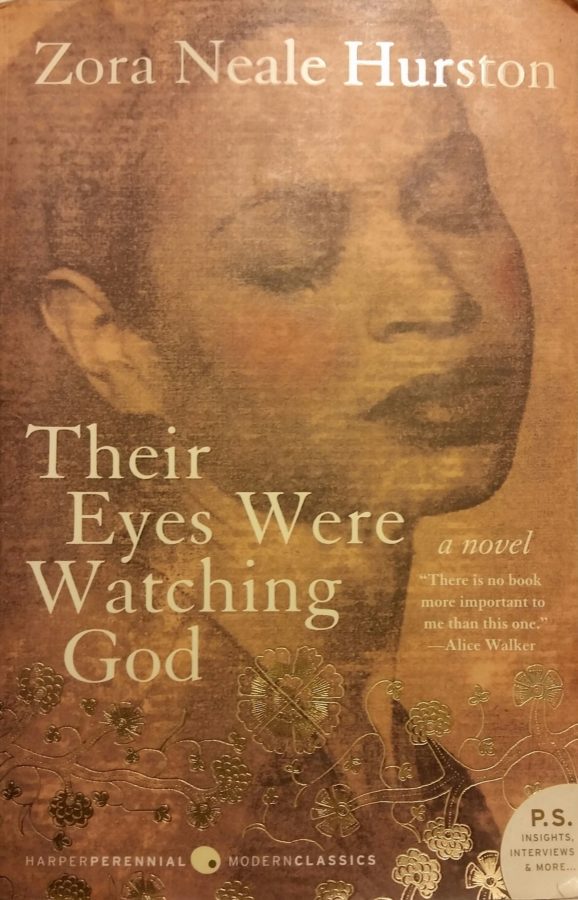Identity and Pear Tree Blossoms: A Review of ‘Their Eyes Were Watching God’
After gaining popularity, “Their Eyes Were Watching God,” published in 1937, was adapted into a movie in 2005.
The 20th century was an immensely controversial time regarding African-American rights, resulting in a torrent of equally contentious books.
Deemed one of the most influential and significant works of African-American literature, “Their Eyes Were Watching God,” a 1937 classic by Zora Neale Hurston, tells the story of Janie Crawford, a black woman brought up in the South. A strong and fiercely independent female protagonist, Janie finds herself on a journey of self-realization as she battles society’s expectations as well as her own. A must-read classic for adolescents, activists and fiction lovers alike, “Their Eyes Were Watching God” liberates the reader as it explores the meaning of identity and growing up.
On a hot day, sixteen-year-old Janie Crawford first witnesses a unification between a bee and a pear tree blossom and is captivated by it, determined to obtain love in her life. After being stuck in two stale marriages for 20-or-so years, Janie finally meets the charming and vibrant Vergible Woods, known to all as Tea Cake.
From each marriage, Janie discovers more about her identity; she learns that adventure and mischief nurture her youthful spirit and that love cannot be arranged. She learns that a marriage should promote equality between a couple, with sacrifices willing to be made. Only when she has achieved this with her partner will she be satisfied.
Using flashbacks, Hurston voices the story in an enchanting manner as the reader joins Janie on her mission to find her identity and achieve personal fulfillment. A moving novel, “Their Eyes Were Watching God” constantly keeps the readers on their toes. Hurston’s characters speak Southern African-American dialect, making the readers feel as though they have been transported to the Deep South. Hurston uses two distinct, intertwining writing styles, from eloquently written and poetic lines describing Janie’s thoughts to Janie’s spoken words of “Lawd have mercy” (Hurston 15).
As Janie grows older, she discovers more about herself and her desires. She learns that “Love is lak de sea. It’s uh movin’ thing, but still and all, it takes its shape from de shore it meets, and it’s different with every shore” (Hurston 191). Janie explores her take on love and realizes that the feeling of love changes with every person, just “lak de sea” and the waves.
Hurston’s novel has received much attention from critics, saying that the use of Southern African-American dialect in the book portrays African Americans as unintelligent. Hurston however, decides to depict and praise the southern African-American culture the way she knows it to be.
In this powerful work of fiction, the reader can connect with Janie and learn the troubles a young black woman endures in a society where discrimination separates a country. In a world where prejudice and racism control society, “Their Eyes Were Watching God” serves as a powerful step toward eradicating ignorance and uniting the human race through literature.
Your donation will support the student journalists of Portola High School. Your contribution will allow us to purchase equipment and cover our annual website hosting costs.

Maya Sabbaghian is one of two 2019-2020 Managing Editors. A staff member since 2016, Maya has previously served as a 2017-2018 Editor-in-Chief, and as...




